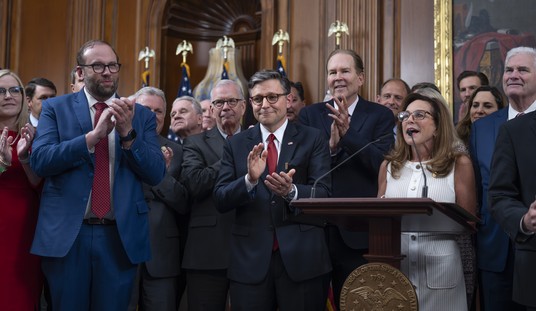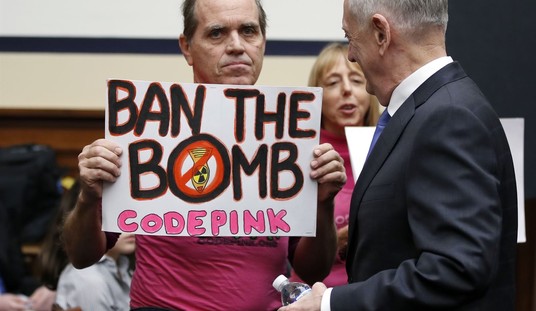
Libertarian presidential candidate Gary Johnson speaks to supporters and delegates at the National Libertarian Party Convention, Friday, May 27, 2016, in Orlando, Fla. (AP Photo/John Raoux)
=========
=========
Promoted from the diaries by streiff. Promotion does not imply endorsement.
=========
=========
Is the Libertarian Party anything at all, other than a waste of time and money? This was the tweet that piqued my interest:
Are you still a small "l" libertarian in the Republican Party? If so, this is the future that awaits you. Time to make the switch to the @LPNational @nsarwark https://t.co/n4AcZYpg59
— Roger Barris (@RogerBarris) June 7, 2018
And my response?
The difference? Small letter libertarian Republicans sometimes win elections, while Libertarians do not. This is where the TEA Party was smarter than the @LPNational : they worked within the @GOP, won some primaries, and got some people elected. https://t.co/d3iOq3CZEh
— Dana Pico (@Dana_TFSJ) June 7, 2018
I've seen the @LPNational's list of elected Libertarians: dog catchers, water board members and a few city councilmen, mostly elected in non-partisan campaigns. Being purists and losing elections gets you exactly nowhere.
— Dana Pico (@Dana_TFSJ) June 7, 2018
Well, perhaps that’s a bit unfair. So I went to the Libertarian Party’s website, to find their list of Libertarian Party candidates who were actually elected to public office. They claim a total of 166 elected officials, with 52 of them holding partisan offices. Those 52 elected Libertarians include:
- School Board members: 2
- Constables: 6
- Supervisors: 1
- Auditors: 8
- Election officials: 6
- Councils: 10
- Commissioners: 8
- State Representatives: 3
- Mayors: 1
- Justices of the Peace: 5
- Treasurers: 1
- Judge: 1
I was interested in the three state representatives, so I looked them up. All three were elected to the New Hampshire state House of Representatives.
- Brandon Phinney, from District 24, was elected in 2016 as a Republican; in 2017 he switched his registration to Libertarian.
- Joseph Stallcop, representing District 4, was the sole candidate to file for election, as a Democrat. He was upopposed, and switched to the Libertarian Party on May 10, 2017.
- Caleb Q Dyer, District 37, was first elected in 2016, as a Republican; he switched to the Libertarian Party on February 9, 2017.
In other words, none of the three Libertarian Party members serving as a state representative was actually elected as a Libertarian. To be fair, the Libertarian Party’s list of elected officials states, specifically:
Nationwide, there are 166 Libertarians holding elected offices: 52 partisan offices, and 114 nonpartisan offices. . . . General criteria: For partisan offices, the elected official must have appeared on the ballot with the party designation “Libertarian” -or- the elected official must currently be registered to vote as a Libertarian. For nonpartisan offices, the elected official must be a current or former dues-paying member of the Libertarian Party -or- the elected official must currently be registered to vote as a Libertarian.
Technically, they never said that these officials were elected to partisan offices while running as Libertarian Party candidates; technically, they did not lie. But saying that ‘technically’ someone did not lie is not saying that he didn’t attempt to obscure the truth, and obscure the truth is exactly what the Libertarian Party has attempted to do.
There is a lot to be said for the positions of the Libertarian Party. I agree, in general, with much of what they say, though would differ in some details. But when a party starts out be being dishonest, it’s kind of difficult to support it.
The most prominent libertarians are former Representative Ron Paul (R-TX) and his son, current Senator Rand Paul (R-KY). The elder Dr Paul served three separate tenure in the House of Representatives, from 1976 to 1977, after he won a special election, then from 1979 to 1985, and finally from 1997 to 2013. Dr Paul was the Libertarian Party’s presidential candidate in 1988. In 1994, he returned to the GOP, and won a congressional seat in the Republican wave in that election. The younger Dr Paul is also noted as a libertarian, but he had the good sense to run for the United States Senate as a Republican in 2010.
There are some obvious differences between the Republicans and the Libertarians, but their similarities are far greater than their differences. The TEA Party insurgence in 2010 was very libertarian in outlook, but by choosing to operate within the GOP, running candidates in Republican primaries, they defeated a few more ‘traditionalist’ Republicans, and won a few seats in the general election.
The Libertarians won nothing.
Zero.
Zilch.
Nada.
There are, I suppose, a few bucks to be made as ‘professional’ Libertarians, heading up the ridiculously small party, serving in its national headquarters. But politics, as the late Malcolm Jewell, a professor of political science at the University of Kentucky, taught me is the practice of winning electoral office to put your philosophy and ideas into governing policy. If you don’t win elections, if you never win elections, you never gain governing power, and all of your ideas wind up as so much hot air.
The Libertarian Party needs to work within the GOP, the way the TEA Party did. It has already been proven that libertarians can win office as officially Republican candidates. And having a few more libertarian Republicans in office might just move more Republicans to libertarian ideas. But the notion of the Libertarian Party as a separate organization has proven to us, since the party’s founding in 1971, to be a complete waste of time and money.
_____________________________
Cross-posted on The First Street Journal.














Join the conversation as a VIP Member